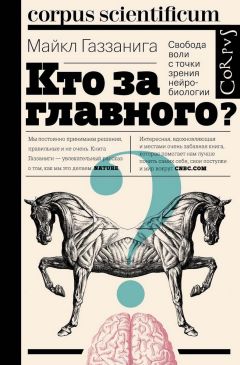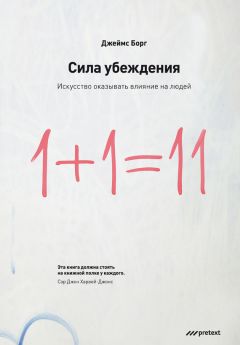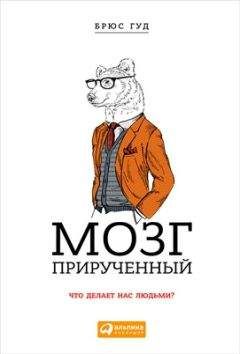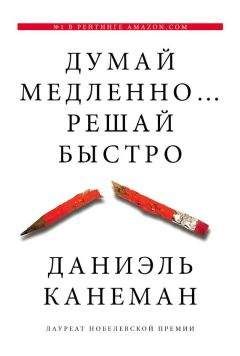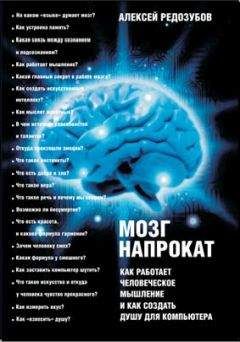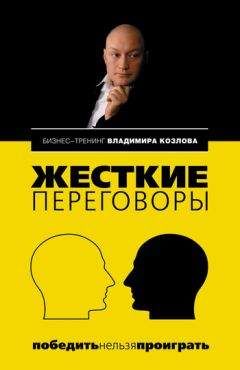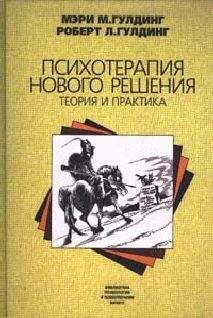Джона Лерер - Как мы принимаем решения

Скачивание начинается... Если скачивание не началось автоматически, пожалуйста нажмите на эту ссылку.
Жалоба
Напишите нам, и мы в срочном порядке примем меры.
Описание книги "Как мы принимаем решения"
Описание и краткое содержание "Как мы принимаем решения" читать бесплатно онлайн.
Mac KAY, Alan. A Dictionary of Scientific Quotations. New York: Taylor and Francis, 1991.
Maclean, Norman. Young Men and Fire. Chicago: University of Chicago Press, 1992.
Main, Mary, and Carol George. Responses of Abused and Disadvantaged Toddlers to Distress in Agemates: A Study in the Day Care Setting. Developmental Psychology 21 (1985): 407—12.
Mangels, J. A., et al. Why Do Beliefs about Intelligence Influence Learning Successf A Social-Cognitwe-Neuroscience Model. Social, Cognitive, and Affective Neuroscience 1 (2006): 75–86.
Marcus, Gary. Kluge. Boston: Houghton Mifflin, 2008.
Marshall, S.L.A. Men Against Fire: The Problem of Battle Command. Tulsa: University of Oklahoma Press, 2000.
Masserman, Jules, Stanley Wechkin, and William Terris. Altruistic Behavior in Rhesus Monkeys. American Journal of Psychiatry 121 (1964): 584—85.
McCabe, Kevin, Daniel Houser, Lee Ryan, Vernon Smith, and Theodore Trouard. A Functional Imaging Study of Cooperation in Two-Person Reciprocal Exchange. Proceedings of the National Academy of Sciences 98 (2001): 11832—35.
McClure, Samuel, G. Berns, and P. Montague. Temporal Prediction Errors in a Passive Learning Task Activate Human Striatum. Neuron 38 (2003): 339—46.
McClure, Samuel, David Laibson, George Loewenstein, and Jonathan Cohen. Separate Neural Systems Value Immediate and Delayed Monetary Rewards. Science 306 (2004): 503—07.
McClure, Samuel, Jian Li, Damon Tomlin, Kim Cypert, Latane Montague, and P. Montague. Neural Correlates of Behavioral Preference for Culturally Familiar Drinks. Neuron 44 (2004): 379—87.
McManus, James. Positively Fifth Street. New York: Picador, 2004.
Miller, Е. К., and J. D. Cohen. An Integrative Theory of Prefrontal Function. Annual Reviews of Neuroscience 24 (2001): 167–202.
Miller, George. The Magical Number Seven, Plus or Minus Two: Some Limits on Our Capacity for Processing Information. Psychological Review 63 (1956): 81–97.
Mlodinow, Leonard. The Drunkard's Walk. New York: Pantheon, 2008. Moll, J., Frank Krueger, Roland Zahn, and Matteo Pardini. Human Fronto-mesolimbic Networks Guide Decisions about Charitable Donation. Proceedings of the National Academy of Sciences 103 (2006): 15623—28.
Montague, Read. The First Wave. Trends in Cognitive Sciences 11 (2007): 407—09. Neuroeconomics: A View from Neuroscience. Functional Neurology 22 (2007): 219—34. Why Choose This Book f New York: Dutton, 2006. Montague, Read, Steven Hyman, and Jonathan Cohen. Computational Roles for Dopamine in Behavioral Control. Nature (2004) 431: 760—67.
Montague, Read, Brooks King-Casas, and Jonathan Cohen. Imaging Valuation Models in Human Choice. Annual Review of Neuroscience 29 (2006): 417—48.
Muller, S. B., et al. How Do World-Class Cricket Batsmen Anticipate a Bowler's Intention? Quarterly Journal of Experimental Psychology 59: 2162—86.
Myers, David. Intuition. New Haven: Yale University Press, 2004. Napoli, Philip. Audience Economics. New York: Columbia University Press, 2003.
Odean, Terrance. Are Investors Reluctant to Realize Their Losses? Journal of Finance 53 (October 1998): 1775—98.
Olds, James, and Peter Milner. Positive Reinforcement Produced by Electrical Stimulation of Septal Area and Other Regions of Rat Brain. Journal of Comparative and Physiological Psychology 47 (1954): 419—27. Oosterbeek, Hessel, Randolph Sloof, and Gijs van de Kuilen. Differences in Ultimatum Game Experiments: Evidence from a Meta-Analysis. Experimental Economics 7 (2004): 171—88.
Oya, H., et al. Electrophysiological Correlates of Reward Prediction Error Recorded in the Human Prefrontal Cortex. Proceedings of the National Academy of Sciences 102 (2005): 8351—56.
Page, Scott. The Difference. Princeton: Princeton University Press, 2008.
Parker, Susan, et al. The Impact of Early Institutional Rearing on the Ability to Discriminate Facial Expressions of Emotion: An Event-Related Potential Study. Child Development 76 (2005): 54–72.
Pierce, Charles. Moving the Chains. New York: Farrar, Straus and Giroux, 2007.
Plassmann, Hilke, John O’Doherty, Baba Shiv, and Antonio Rangel. Marketing Actions Can Modulate Neural Representations of Experienced Pleasantness. Proceedings of the National Academy of Sciences 105 (2007): 1050—54.
Post, Thierry, et al. Deal or No Deal? Decision Making under Risk m a Large-Payoff Game Show. American Economic Review, March 2008. Predmore, Steven. The Dynamics of Group Performance: A Multiple Case Study of Effective and Ineffective Fhghtcrew Performance. PhD dissertation, University of Texas at Austin, 1992.
Prelec, Drazen, and Duncan Simester. Always Leave Home Without It. Marketing Letters 12 (2001): 5—12.
Prinz, Jesse. Gut Reactions. New York: Oxford University Press, 2004. Rabinovich, Abraham. The Yom Kippur War: The Epic Encounter that Transformed the Middle East. New York: Schocken, 2005.
Raviv, Dan, and Yossi Melman. Every Spy a Prince. Boston: Houghton Mifflin, 1990.
Rolls, Edmund. The Brain and Emotion. New York: Oxford University Press, 1999. The Orbitofrontal Cortex and Reward. Cerebral Cortex 10 (2000): 285—94.
Rorie, A. E., and W. T. Newsome. A General Mechanism for Decision-Making in the Human Brain? Trends in Cognitive Science 9
(2005): 41—43-
Sandkuhler, Simone, and Joydeep Bhattacharya. Deconstructing Insight: EEG Correlates of Insightful Problem Solving. PLoS One, January 2008, http://www.plosone.org/article/fetchArticle.actionParticleURI=info: doi/ 10.13 7i/journal.pone.oooi459
Sanfey, Alan, James K. Rilling, Jessica A. Aronson, Leigh E. Nystrom, and Jonathan D. Cohen. The Neural Basis of Economic Decision Making m the Ultimatum Game. Science 300 (2003): 1755—57. Schelling, Thomas. Choice and Consequence. Cambridge: Harvard University Press, 1985.
Schoenemann, P. Т., M. J. Sheehan, and L. D. Glotzer. Prefrontal White Matter Volume Is Disproportionately Larger in Humans Than m Other Primates. Nature Neuroscience 8 (2005): 242—52.
Schultz, Robert, et al. The Role of the Fusiform Face Area m Social Cognition: Implications for the Pathobiology of Autism. Philosophical Transactions of the Royal Society, Series В 358 (2003): 415—27.
Schultz, Wolfram. Predictive Reward Signal of Dopamine Neurons. Journal of Neurophysiology 80 (1998): 1—27.
Schultz, Wolfram, P Dayan, and P R. Montague. A Neural Substrate of Prediction and Reward. Science 275 (1997): 1593—99.
Schwartz, Barry. The Paradox of Choice. New York: HarperCollins, 2004.
Shaw, Philip, Jason Lerch, Deanna Greenstein, Wendy Sharp, Liv Clasen, Alan Evans, Jay Giedd, F. Xavier Castellanos, and Judith Rapoport. Attention- Deficit/Hyperactivity Disorder Is Characterized by a Delay in Cortical Maturation. Proceedings of the National Academy of Sciences 104 (2007): 19649—54.
Shiv, Baba, Ziv Carmon, and Dan Ariely. Placebo Effects of Marketing Actions: Consumers May Get What They Pay For. Journal of Marketing Research, (November 2005): 383—93.
Shiv, Baba, and Alexander Fedorikhin. Heart and Mind m Conflict: The Interplay of Affect and Cognition m Consumer Decision Making. Journal of Consumer Research 26 (1999): 278—92.
Shiv, Baba, George Loewenstein, Antoine Bechara, Hanna Damasio, and Antonio Damasio. Investment Behavior and the Negative Side of Emotion. Psychological Science 16 (2005): 435—39.
Shoda, Y., W Mischel, and P. K. Peake. Predicting Adolescent Cognitive and Self regulatory Competencies from Preschool Delay of Gratification. Developmental Psychology 26 (1990): 978—86.
Small, D. A., George Loewenstein, and Paul Slovic. Sympathy and Callousness: The Impact of Deliberative Thought on Donations to Identifiable and Statistical Victims. Organizational Behavior and Human Decision Processes 102 (2007): 143—53.
Smith, Adam. The Theory of Moral Sentiments. New York: Prometheus Books, 2000.
Sniderman, Paul, Richard Brody, and Philip Tetlock. Reasoning and Choice: Explorations m Political Psychology. Cambridge: Cambridge University Press, 1993.
Solomon, Robert. True to Our Feelings. New York: Oxford: Oxford University Press, 2006.
Sommers, Tamler. Jonathan Haidt. The Believer, August 2005.
Steele, Claude. Thin Ice: Stereotype Threat and Black College Students. Atlantic Monthly, August 1999.
Steele, Claude, and J. Aronson. Stereotype Threat and the Intellectual Test Performance of African-Americans. Journal of Personality and Social Psychology 69 (1995): 797–811.
Stout, Martha. The Sociopath Next Door. New York: Broadway, 2005. Sullivan, Terry, and Peter Maiken. Killer Clown: The John Wayne Gacy Murders. New York: Pinnacle, 2000.
Sutton, Rich. Learning to Predict by the Methods of Temporal Difference. Machine Learning 3 (1998): 9—44.
Tankersley, D., C. J. Stowe, and S. A. Huettel. Altruism Is Associated with an Increased Neural Response to Agency. Nature Neuroscience 10
(2007): 150—51.
Tavris, Carol, and Elliot Aronson. Mistakes Were Made (But Not by Me). New York: Harvest, 2008.
Taylor, S. E., N. I. Eisenberger, D. Saxbe, B. J. Lehman, and M. D. Lieberman. Neural Bases of Regulatory Deficits Associated with Childhood Family Stress. Biological Psychiatry 60 (2006): 269–301.
Telfer, Ross, and John Biggs. The Psychology of Flight Training. Des Moines: Iowa State Press, 1988.
Tesauro, Gerald, et al. A Parallel Network that Learns to Play Backgammon. Artificial Intelligence 39 (1989): 357—90.
Tetlock, Philip. Expert Political Judgment. Princeton: Princeton University Press, 2006.
Thaler, Richard. The Winner’s Curse. Princeton: Princeton University Press, 1992.
Thaler, Richard, and Cass Sunstein. Nudge: Improving Decisions and Health, Wealth and Happiness. New Haven: Yale University Press, 2008. Trivers, Robert. The Evolution of Reciprocal Altruism. Quarterly Review of Biology 46 (1971): 35–67.
Tversky, Amos, and Daniel Kahneman. Judgment under Uncertainty: Heuristics and Biases. Science 185 (1974): 1124—31. The Framing of Decisions and the Psychology of Choice. Science 211 (1981): 453—58.
Vallone, Robert, et al. The Hostile Media Phenomenon: Biased Perception and Perceptions of Media Bias in Coverage of the Beirut Massacre. Journal of Personality and Social Psychology 49 (1985): 577—85.
Wager, Tor, et al. Placebo-Induced Changes m fMRI in the Anticipation and Experience of Pain. Science 303 (2004): 1162—66.
Wansink, Brian. Mindless Eating. New York: Bantam, 2006.
Weltman, G., J. E. Smith, and G. H. Egstrom. Perceptual Narrowing During Simulated Pressure-Chamber Exposure. Human Factors 13 (1971): 99—107.
Westen, Drew. The Political Bram. New York: Public Affairs, 2007. Westen, Drew, C. Kilts, P. Blagov, K. Harenski, and S. Hamann. The Neural Basis of Motivated Reasoning: An fMRI Study of Emotional Constraints on Political Judgment during the U.S. Presidential Election of 2004. Journal of Cognitive Neuroscience 18 (2006): 1947—58.
Wilkinson, Alec. Conversations with a Killer. The New Yorker, April 18, 1994.
Wilson, М., and М. Daly. Do Pretty Women Inspire Men to Discount the Future? Proceedings of the Royal Society of London Biological Science 51: 1326—35.
Wilson, Timothy. Strangers to Ourselves. Cambridge: Harvard University Press, 2002.
Подписывайтесь на наши страницы в социальных сетях.
Будьте в курсе последних книжных новинок, комментируйте, обсуждайте. Мы ждём Вас!
Похожие книги на "Как мы принимаем решения"
Книги похожие на "Как мы принимаем решения" читать онлайн или скачать бесплатно полные версии.
Мы рекомендуем Вам зарегистрироваться либо войти на сайт под своим именем.
Отзывы о "Джона Лерер - Как мы принимаем решения"
Отзывы читателей о книге "Как мы принимаем решения", комментарии и мнения людей о произведении.





